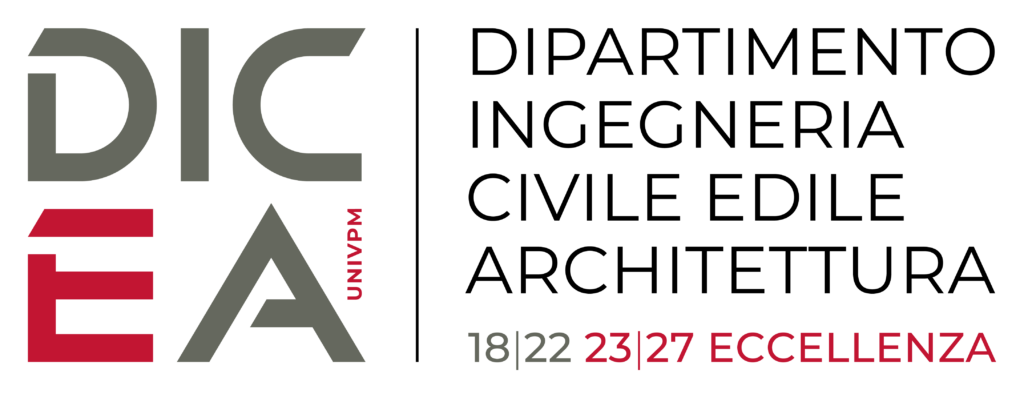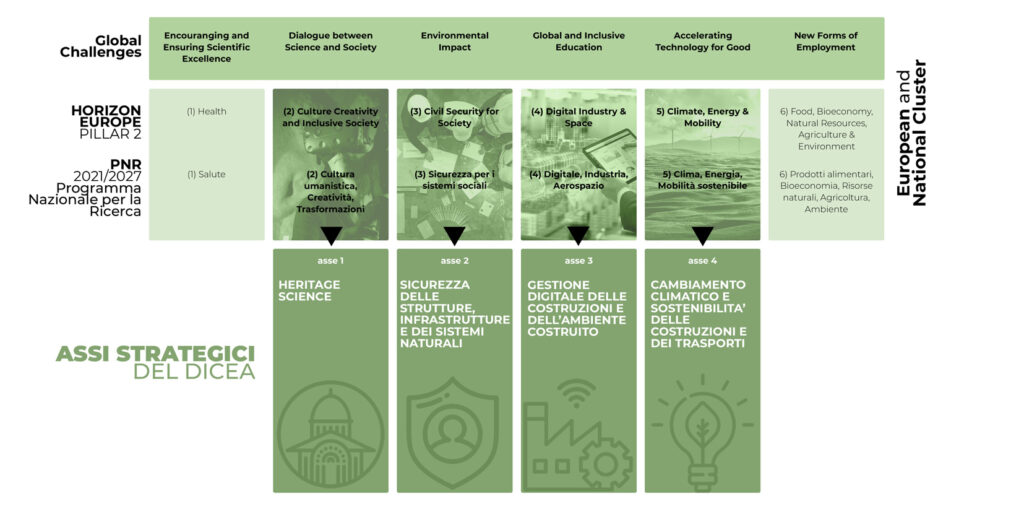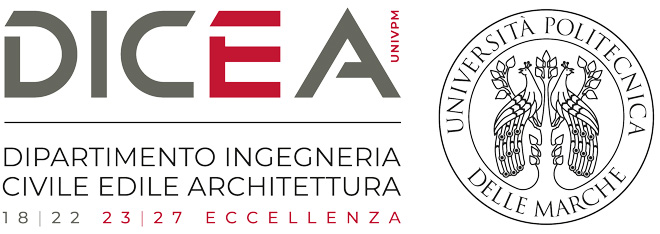
Our society today faces a profound crisis in its development models. The environmental crisis scenarios linked to ongoing climate change, the economic and energy crisis, and social imbalances make it clear that we need to make sustainable development issues central, rethinking models of economic development, land use and management, and mobility, in order to mitigate the current phenomena and provide society itself with the capacity to adapt.
The DICEA department intends to contribute to this challenge by working with its DIPARTMENT OF EXCELLENCE project on 4 thematic axes, consistent with EU and national (PNRR) guidelines and related to its application domain:

Although the DICEA is characterised by very high indicators, in order to better work on these axes, given the criticalities that still remain with respect to the reference benchmarks in terms of sectorality, attractiveness, impact on the production system and territorial government, and communication capacity, it proposes a development plan based on 4 strategic actions:
These actions are in continuity with the objectives set with the DE 2018-22 to face the new challenges, consolidating the excellence achieved so far, re-proposing the actions not fully accomplished for the pandemic and at the same time innovating the previous objectives to ensure a better impact in the socio-economic context.
These objectives will constitute an original and innovative reference to the growth of knowledge on the built environment and territory, contributing to the development of society and the economy, to the success of environmental and social policies, to the improvement of the quality of life and industrial competitiveness, to the protection of the environment, as well as policies for social inclusion and cohesion, urban development and security.
The potentially high impact both in terms of research, training and socio-economic will allow the DICEA to strengthen its connotation as an international centre of excellence and high specialisation, capable of promoting the green and digital transition in the construction sector, while continuing to support the transfer of knowledge and technology in favour of the territory, enterprises and public administration, towards greater sustainability of processes, products and the improvement of safety and resilience of the built and unbuilt environment, towards the preservation of cultural heritage and opening the field to the new challenges in the Civil Construction and Architecture Area that climate change and sustainable mobility pose.

